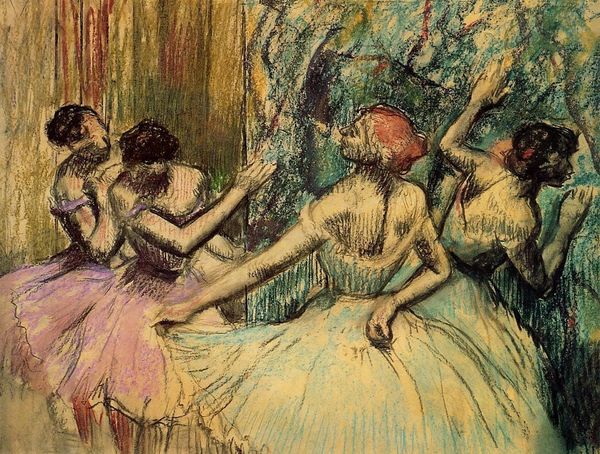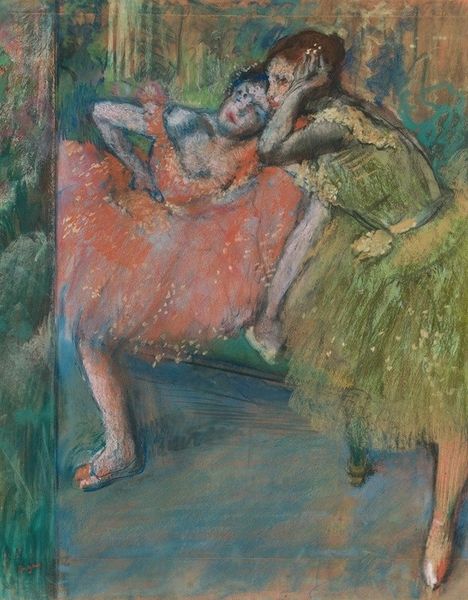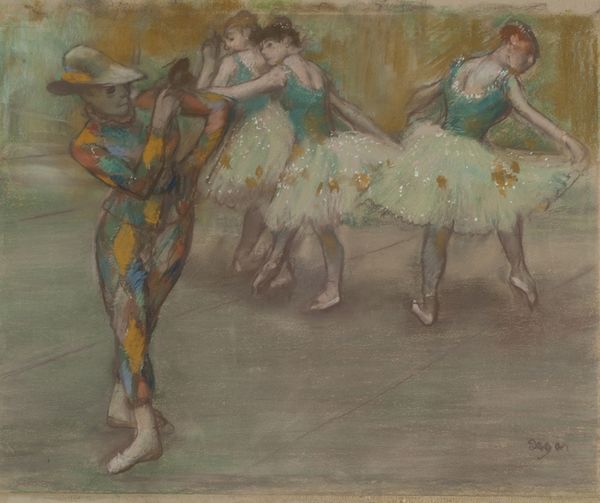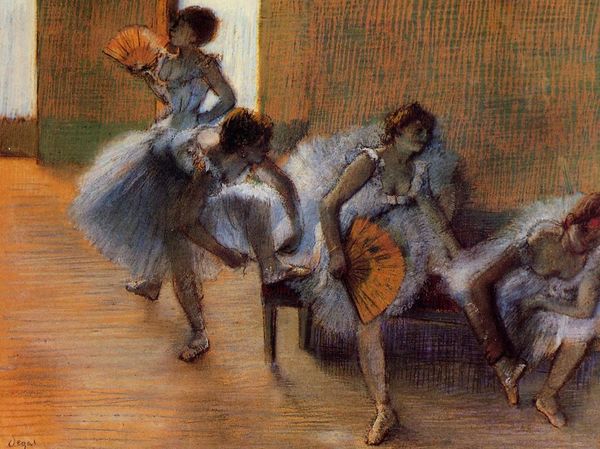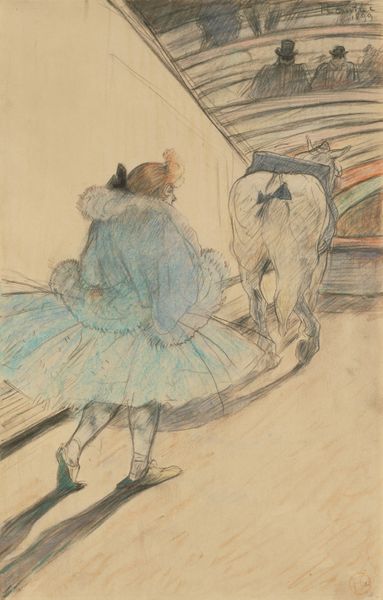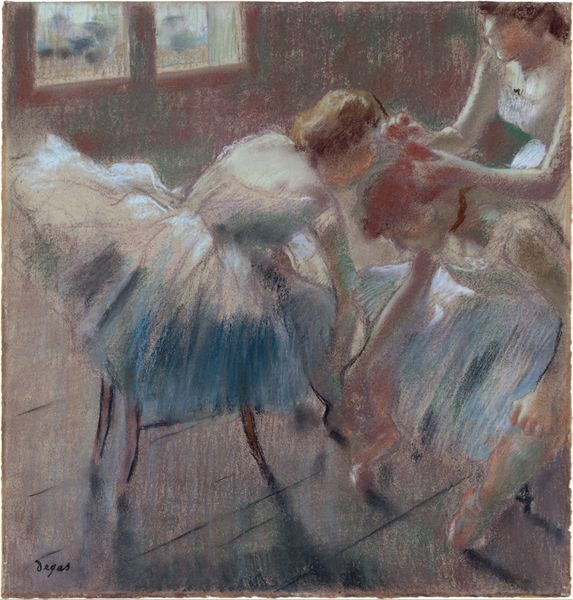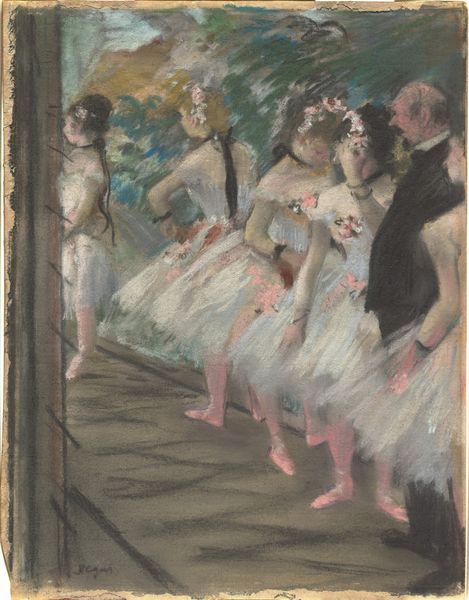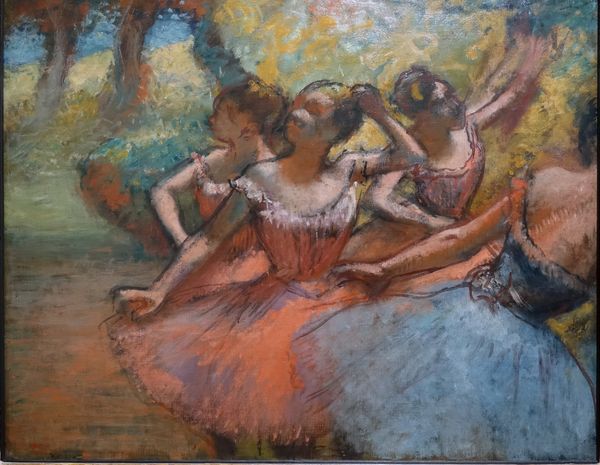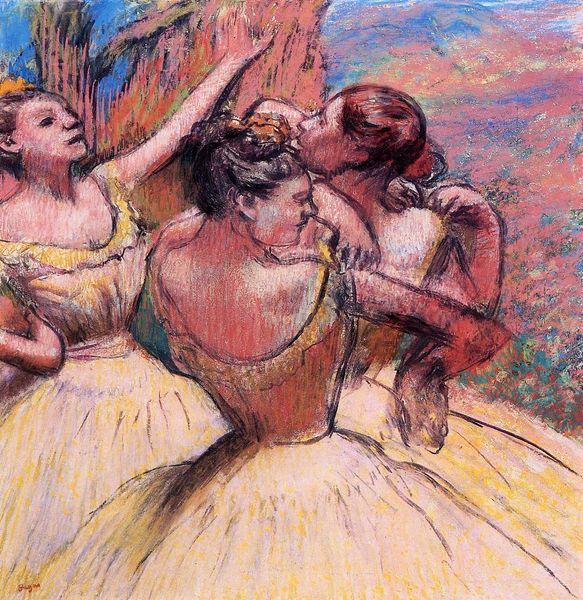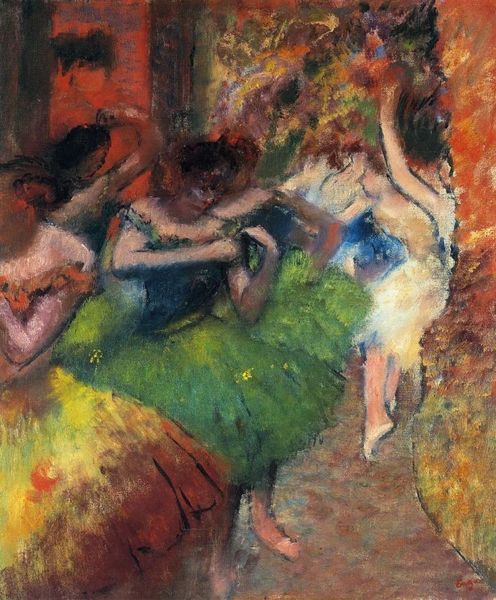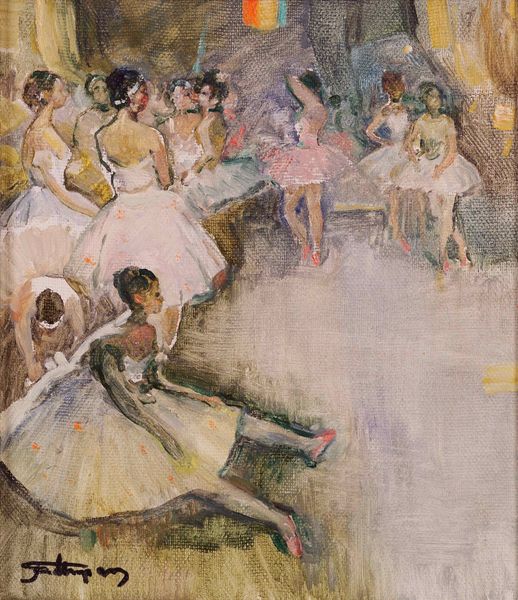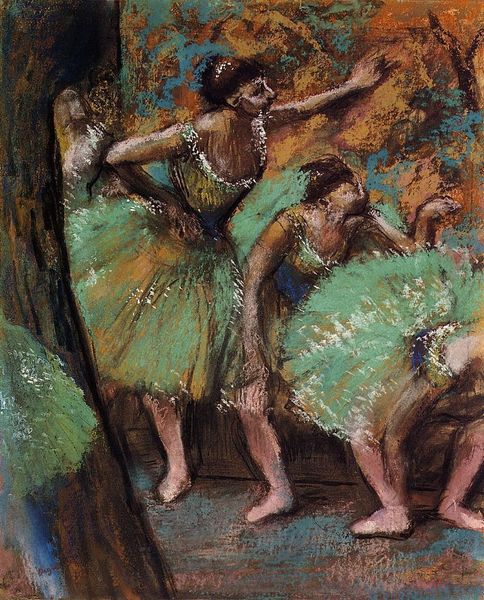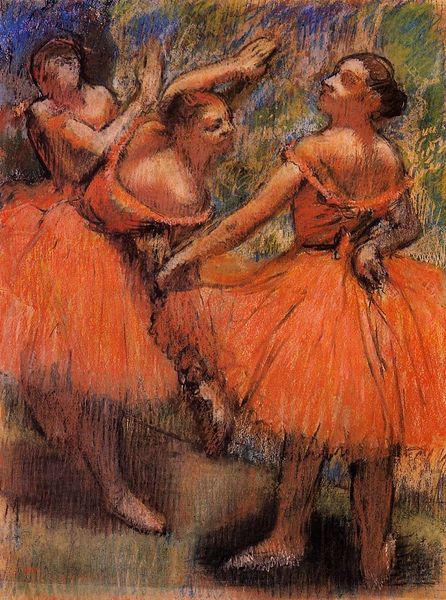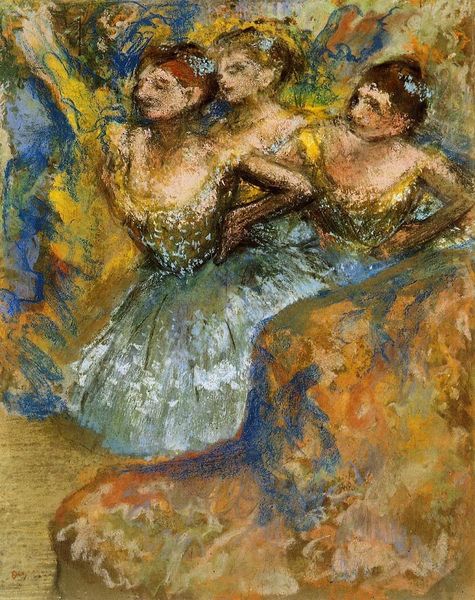
drawing, pastel
#
drawing
#
impressionism
#
figuration
#
oil painting
#
genre-painting
#
pastel
#
nude
#
watercolor
Dimensions: 28 x 23 1/4 in. (71.1 x 59.1 cm)
Copyright: Public Domain
Edgar Degas made "The Dancers" using pastel on paper, and that choice of material is key to its effect. Pastels aren’t like paint; they don't blend so much as accumulate in velvety layers. Look closely, and you’ll see how Degas built up the image through repeated strokes of pigment, hatching and crosshatching to capture the fleeting movements of the dancers. This technique allowed him to achieve a sense of immediacy, as if we are catching a glimpse of a private moment. While the subject matter may seem traditional, the use of pastel allowed Degas to push the boundaries of fine art. With its dry, powdery texture and luminous color, pastel lends itself perfectly to capturing the ephemeral quality of light and movement. Degas’s embrace of this medium reflects a broader trend in the 19th century, as artists began to explore new materials and techniques to capture the dynamism of modern life. By elevating pastel to the level of high art, Degas challenged conventional notions of what constituted a finished work, paving the way for future generations of artists to experiment with unconventional materials.
Comments
No comments
Be the first to comment and join the conversation on the ultimate creative platform.
